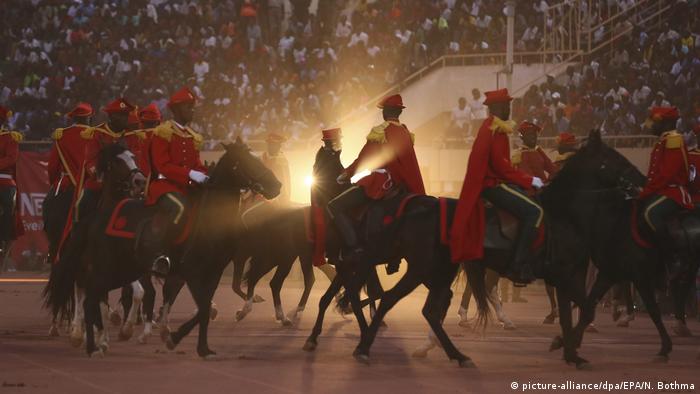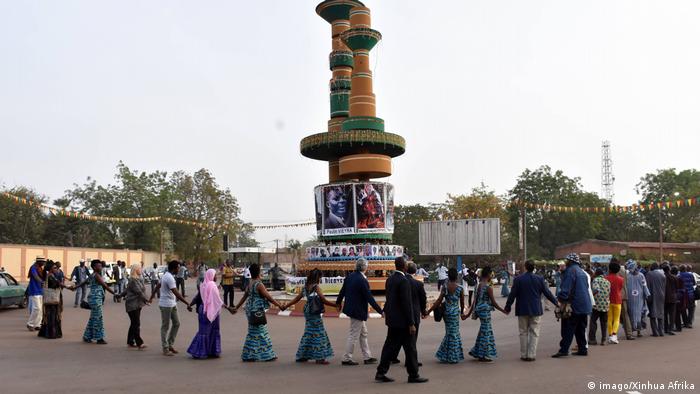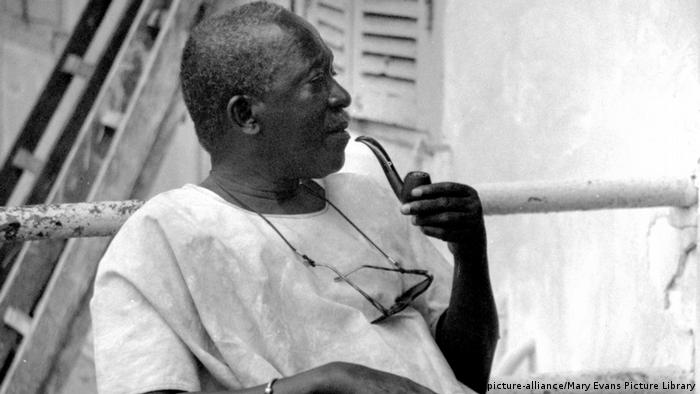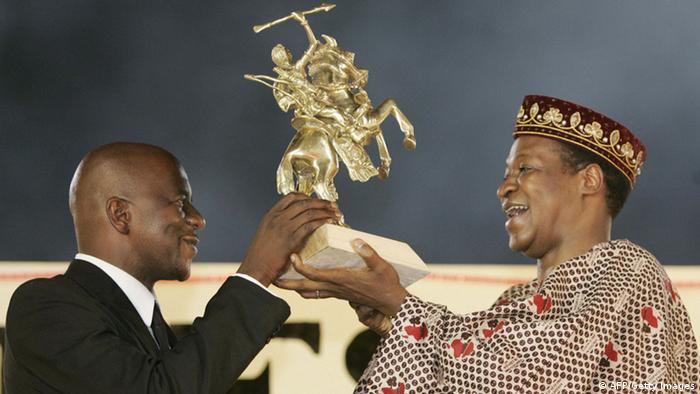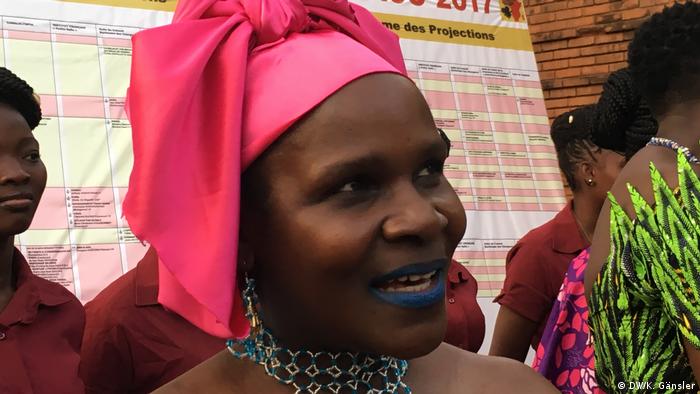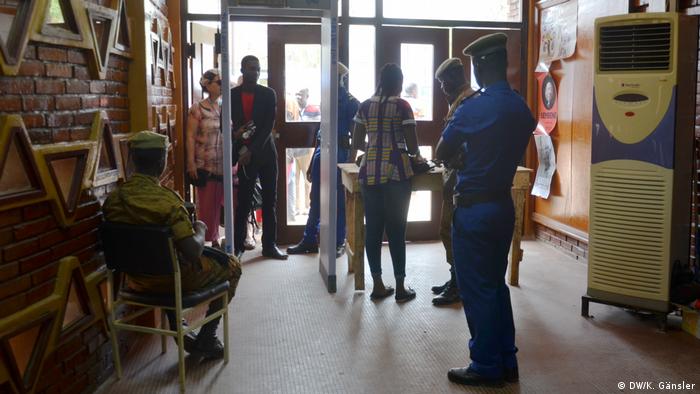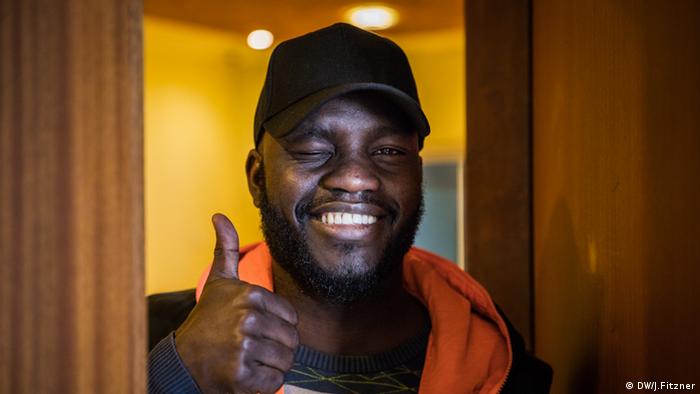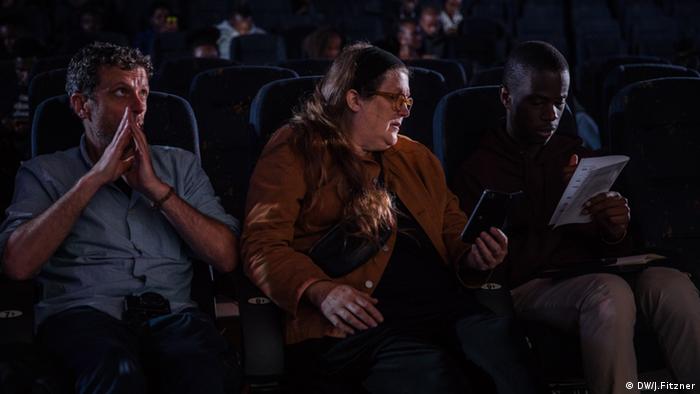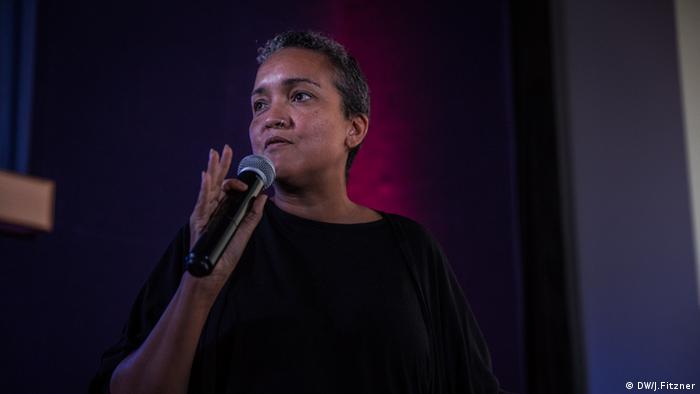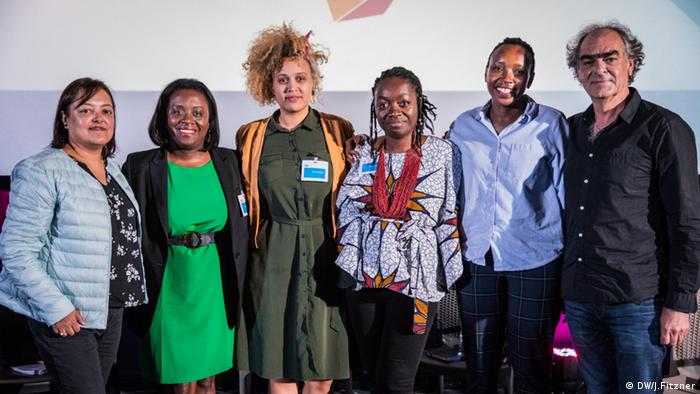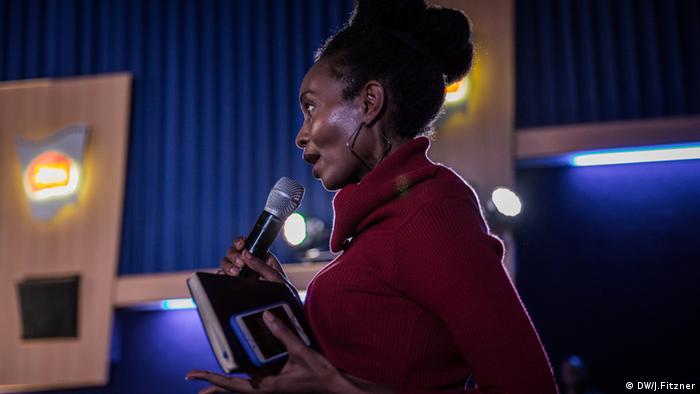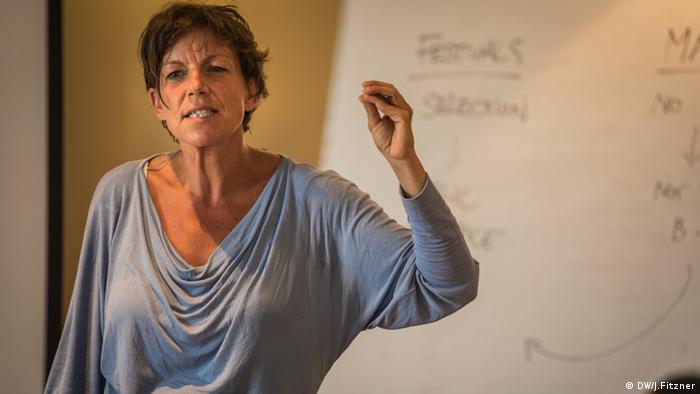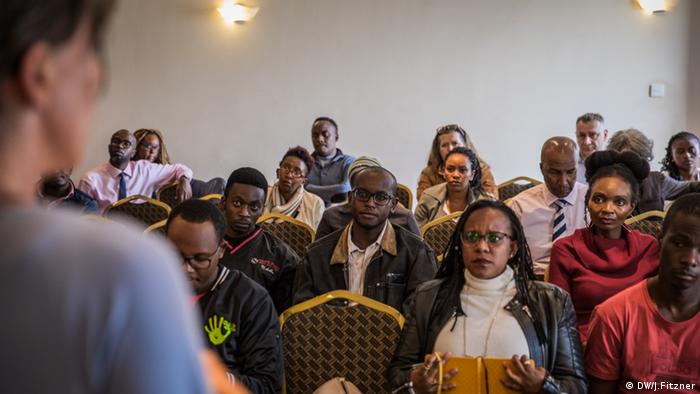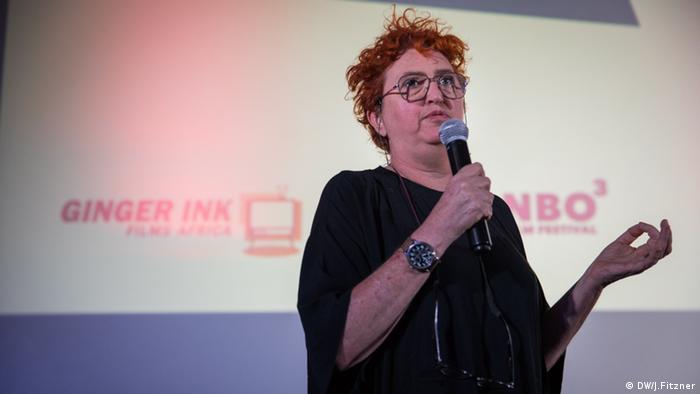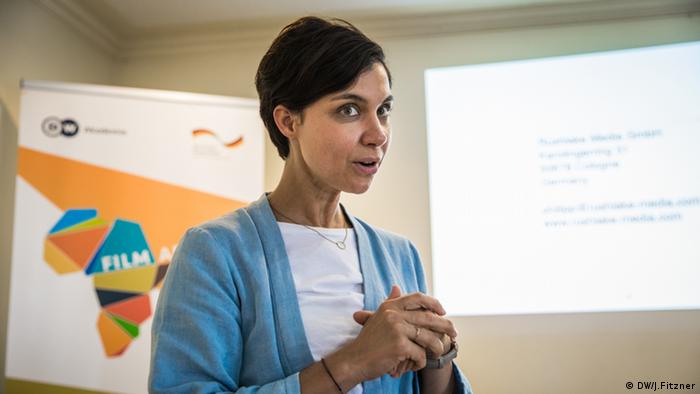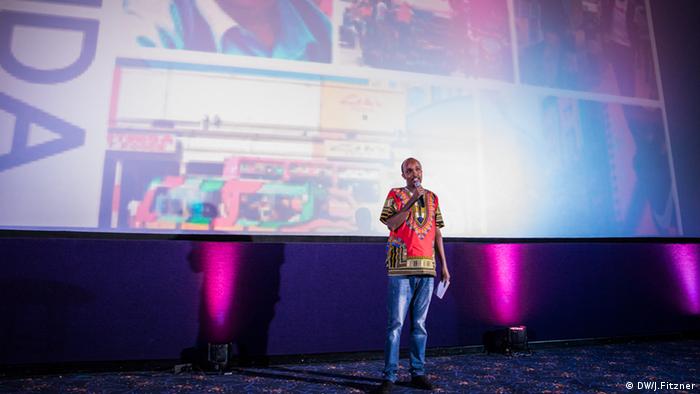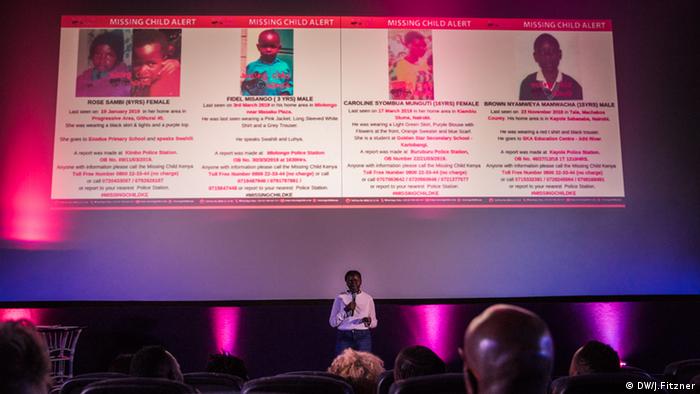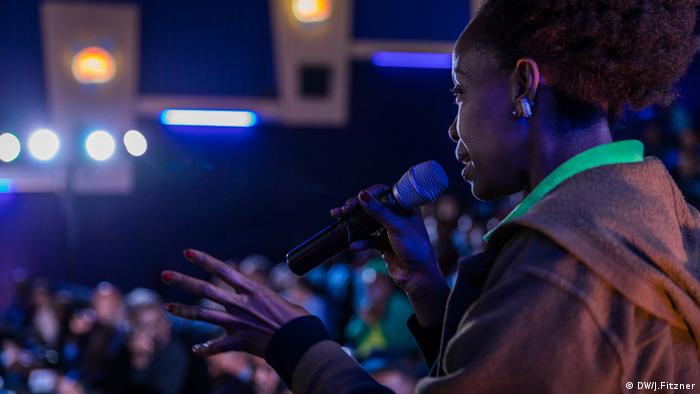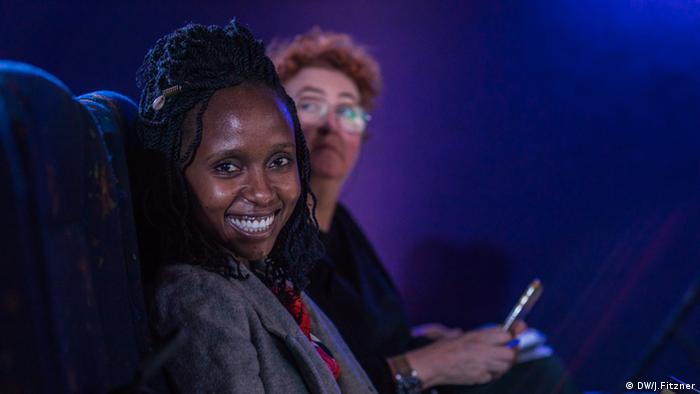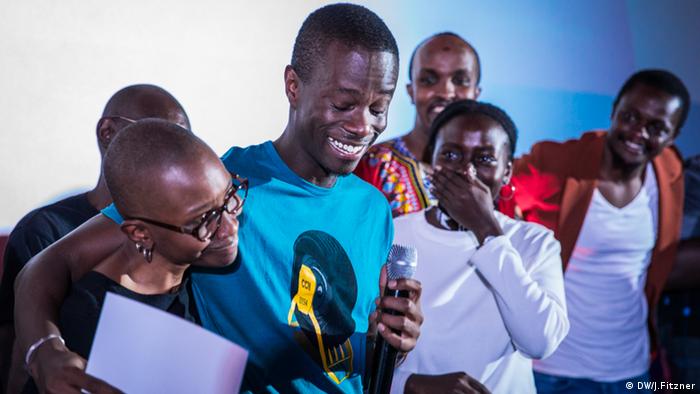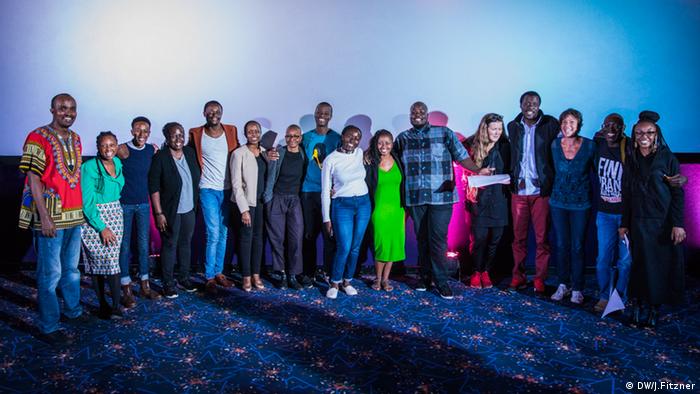COVID-19 restrictions overshadowed the 2020 edition of the Africa Film Festival in Cologne. The filmmakers discussed the downside of the pandemic at screenings of films that delve into topics like stigma and Afro hair.
Most of the filmmakers from Africa and its diaspora who had submitted their work could not make it to Cologne due to COVID-19 restrictions. Franco-Tunisian filmmaker Hind Meddeb was one of those who made it. African filmmakers need more support, not just in times of pandemic, she said.
"The situation is tough for the African filmmakers who don't have the chance to receive help from their governments," Meddeb told DW. The filmmakers are not only hit financially, but they also have to face restrictions imposed by their governments due to the pandemic."
Read more: Netflix: Will first African series launch a new chapter in African filmmaking?
She said it has not been easy to work because of the limitation of freedom. "The coronavirus pandemic is a disaster from the restriction on freedom point of view," Meddeb added.
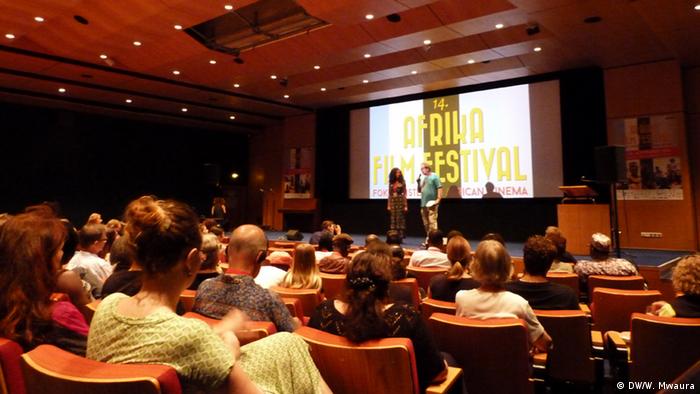
Previous editions of the Africa Film Festival have been well attended
The Cologne Africa Film Festival is an opportunity for filmmakers to show their work. They collectively want to improve the image of the African continent long associated with poverty, disease, and corruption. "It is this type of festival that allows us to go in the direction to create African solidarity," said Meddeb.
Africa Film Festival Lite version
This year, the festival had to slash down on everything as a result of COVID-19. Instead of screening 80 films, the number was reduced to 29. Six international guests were in attendance. Usually, 30 or more make it. Out of the 260 bookable seats, the organizers allowed only 60 to be sold — with two to three screenings per day instead of the usual four to six, back-to-back.
-
50 years of African film at FESPACO
A festival of African movies
One of the oldest and most important film festivals on the African continent is celebrating a major anniversary: the Pan-African Film and Television Festival in Ouagadougou — FESPACO — took place for the first time in February 1969.
-
50 years of African film at FESPACO
The magic of cinema
As is usually the case, the 26th edition of the festival, which began on February 23 in Ouagadougou, the capital of Burkina Faso, was opened with a fanfare. Horses are an integral part of the festival: the jury's main prize is the Etalon d'Or de Yennenga, the golden stallion named after a mythical princess.
-
50 years of African film at FESPACO
Ouagadougou: West Africa's capital of cinema
African film buffs founded the festival in the capital of the then state of Upper Volta. To date, 2,140 films have been shown there and 160 prizes awarded. Since 1987, the monumental film reels on the Place des Cineastes testify to Ouagadougou's status as the capital of African cinema.
-
50 years of African film at FESPACO
Ousmane Sembene and the mass medium
African cinema was influenced by former colonial powers. In francophone West Africa Ousmane Sembene went down in history as a pioneering African director. Originally a novelist, Sembene saw film as a medium for the masses, able to reach the illiterate. But the worldwide distribution of African movies remains a problem for the continent's filmmakers.
-
50 years of African film at FESPACO
Affirming the African identity
From the very beginning, African cinema has also had a political mission: to overcome the cultural domination of European colonial states and to oppose it with figures Africans can identify. Med Hondo's film "Sarraounia" tells the story of a ruler who opposed French colonization. It was awarded the Etalon d'Or in 1987.
-
50 years of African film at FESPACO
A stallion south of the Kalahari
Africa's directors have also successfully tackled recent history. In "Drum," Zola Maseko examines the life and work of journalists in the township of Sophiatown under South Africa's apartheid regime. He received an award in 2005 as the first South African and only second Anglophone filmmaker, a breakthrough. In the following years the main prize went to Nigeria and Ethiopia.
-
50 years of African film at FESPACO
Out of the shadows
Others have also had to fight their way to recognition. It wasn't until the 2010s that female filmmakers came into the spotlight. They have their own annual festival which also coincides with FESPACO. In "Frontieres," Naky Sy Savane played an Ivorian woman who smuggles textiles to finance her children's studies.
-
50 years of African film at FESPACO
Crossing the continent's borders
The relationship to the rest of the world remains ambiguous. Filmmakers from the African diaspora were only invited starting in 1987. It took until 2015 for them to be allowed to win the main prize. And few African directors have achieved fame abroad. Abderrahmane Sissako was the first African to win the French film award César with "Timbuktu" in 2015.
-
50 years of African film at FESPACO
Hit by terrorism
The country in the Sahel zone was spared terror for a long time. The shock was all the greater when in 2016 the Hotel Splendid — popular among the festival's VIPs — became the target of an Islamist attack. The presence of international stars could turn FESPACO itself into a target. The following year security was greatly increased.
-
50 years of African film at FESPACO
Into the digital age on a shoestring
Digital films have been admitted to the competition since 2015. But they had to overcome yet another hurdle: initially, all digital films had to be converted in an expensive process. There isn't much of a paying public for African films, and directors don't have the support of television companies. To this day, the African film industry is dependent on outside support.
Author: Philipp Sandner
The tickets could only be bought online, whereas one could get them at the box office in the past. There was no festival information hub in the foyer, no music, bookstalls, no African food, and no festival party.
Nevertheless, FilmInitiativ e.V, the Afrika Film Festival organizer, told DW, they hope "people are still interested in movies from Africa and the African diaspora."
The festival was not confined to one theme this year: the films and discussions were about Afro hair, women's rights, homophobia, and the rights of LGBT+ people in Africa.
Using the silver screen to fight stigma
Africans, specifically those born in Europe, have often felt stigmatized because of their hair's texture, commonly known as afro. That is one of the various themes addressed at this year's Cologne Film festival.
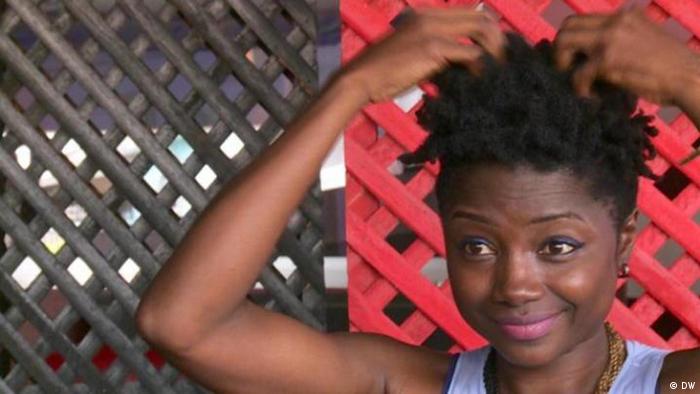
Afro hair and embracing African identity was a strong theme in this year's Africa Film Festival
"I know people who have an afro but never had the courage to go outside with their afro haircut on natural. I, too, have never done it," says Marie in a documentary film "Strong Hair," directed by Kokutekeleza Musebeni. The 33-year-old German filmmaker has roots in the continent. Her father, a Tanzanian, came to Germany in the 1970s.
Musebeni's film is one of 75 feature films, documentaries, animations, and short films screened at the 18th African Film Festival in Cologne. The film tells the story of Marie, a girl born to African parents, who has struggled to accept prejudices about her skin color, more specifically, her hair since she was a child.
-
The art of marketing films: Workshop for filmmakers in Nairobi
"Film Africa: Distribution"
DW Akademie together with its partners One Fine Day Films, Ginger Ink Films and the Nairobi Film Festival recently held a pitching workshop in Nairobi for young Kenyan filmmakers. It was followed by an international network meeting focusing on how to market films and TV productions in Africa.
-
The art of marketing films: Workshop for filmmakers in Nairobi
International trainers
The young filmmakers were coached by renowned Swedish pitching trainer, Helene Granqvist.
-
The art of marketing films: Workshop for filmmakers in Nairobi
Location: Nairobi Film Festival
Sheba Hirst is the director of the Nairobi Film Festival that hosted the pitching workshop as well as the two-day network meeting on marketing and distribution.
-
The art of marketing films: Workshop for filmmakers in Nairobi
How do you successfully market a film?
An expert panel discussed film distribution and marketing in Africa and around the world. Panel members (from left to right): Trushna Buddhev Patel, Crimson Multimedia, Kenya; Sarah Summers, Coloured Mentality web series, South Africa; Edima Otuokon, Organized M.E.S.S. and Ladima Foundation, Nigeria; Monika Waceke, Kwese Free TV, Kenya; host Don Edkins, STEPS, South Africa.
-
The art of marketing films: Workshop for filmmakers in Nairobi
Questions from the audience
Workshop participants responded to audience questions.
-
The art of marketing films: Workshop for filmmakers in Nairobi
Sharing ideas with participants
Jana Wolff from the Berlinale film festival's European Film Market ran a workshop on the "Berlinale Africa Hub".
-
The art of marketing films: Workshop for filmmakers in Nairobi
Film festivals as platforms for marketing and networking
Wolff's workshop focused on developing successful strategies for film festivals.
-
The art of marketing films: Workshop for filmmakers in Nairobi
The partners
Ginger Wilson co-heads Ginger Ink TV which has produced six successful Kenyan feature films together with Tom Tykwers' One Fine Day Films and DW Akademie.
-
The art of marketing films: Workshop for filmmakers in Nairobi
The Partners
Sarika Hemi Lakhani is a producer with One Fine Day Films and held the workshop "Distribution Contracts – Do's and Don'ts".
-
The art of marketing films: Workshop for filmmakers in Nairobi
Presenting projects to a large audience
After attending Granqvist's pitching workshop participants such as Mahad Ahmed presented their projects to the audience.
-
The art of marketing films: Workshop for filmmakers in Nairobi
Missing Child Alert
Owino Sang'iewa was also on stage to pitch her project.
-
The art of marketing films: Workshop for filmmakers in Nairobi
Queries and comments
The audience asked questions after each pitch and gave feedback on the presentations.
-
The art of marketing films: Workshop for filmmakers in Nairobi
Part of the audience
Tina Kabuthu, production assistant at Ginger Ink Films, and Ginger Wilson, co-head of Ginger Ink TV, sat with the audience to watch the pitches and obviously enjoyed themselves.
-
The art of marketing films: Workshop for filmmakers in Nairobi
And the winner is…
The winner of the pitching workshop was selected by an expert jury: Denise Mwende (Showmax, Kenya), Linda Githige (Kwese iflix, Kenya), Wanuri Kahlu (filmmaker, Kenya) Cindy Mbae (Rushlake Media, Kenya) and Jana Wolff (European Film Market Berlinale). The award went to Densu Moseti.
-
The art of marketing films: Workshop for filmmakers in Nairobi
All winners
The participants were in fact winners, having made new contacts and having gained numerous professional tips.
Finally, she makes peace with herself and appreciates her hair even better. She had to use hair relaxers to straighten her hair. But now she says she does it differently for her daughter, knowing that some of these hair relaxers are toxic.
Read more: Africa Film Festival 2019: Migration and citizenship take center stage
Embracing identity
"Strong Hair" is not the only film that deals with self-acceptance and stigma. "Medusa" by Johanna Makabi and Adele Albrespy, evokes the same theme and immerses the viewer in the African community's world. It portrays the prejudices about the afro cut, the desire to relax hair to 'appear' more beautiful, and the stigmatization of black men who prefer women with straight hair.
"Hair Love" by Matthew A. Cherry, Everett Downing, and Jr. Bruce W. Smith, is another film by Afro-American filmmakers, which shows the difficulties an African father goes through to style his little girl's afro hair. She wants to have an afro haircut to please her sick mother, who used to give her the same haircut before her illness.
Raising awareness
"It is a real issue to have afro hair in Germany. People often ask me: so can you comb your hair, or they touch my hair without asking me, even strange people do this and a lot of other stuff that makes me feel stigmatized with my hair, with my appearance," said Esther Donkor, a writer and member of the Festival organization.
To raise awareness, she has created a platform called "KrauseLocke," a German word which means "nappy" hair. Esther has also written a book entitled 'Keep it kraus! Das basisbuch für krauselocken' with her sister Diana Donkor, which she also presented during the film screenings.
Afro hair is not the only exciting theme at this year's festival. Women's rights, homophobia, and LGBT rights in African society are other crucial topics that were addressed during the festival.
Read more: Making movies in Africa: Breaking conventions
The migrants from Africa and other parts of the world have always been a huge topic in the festival's previous editions. This year was no exception. "Paris Stalingrad" by Hind Meddeb, the Franco-Tunisian filmmaker, exposes the plight of undocumented migrants in Paris.

The migration crisis is one of Europe's biggest challenges
She wanted to show a hidden side of the French capital, when it closes its doors to asylum seekers and builds barriers to chase them out of the public space, creating new frontiers in the city center. Meddeb followed Mohamed, a Sudanese refugee who went through many difficulties trying to settle in France. It eventually worked out for him, but Meddeb wanted to show that he was one of the lucky ones. Most of the refugees survive on the streets with little help from the government.





